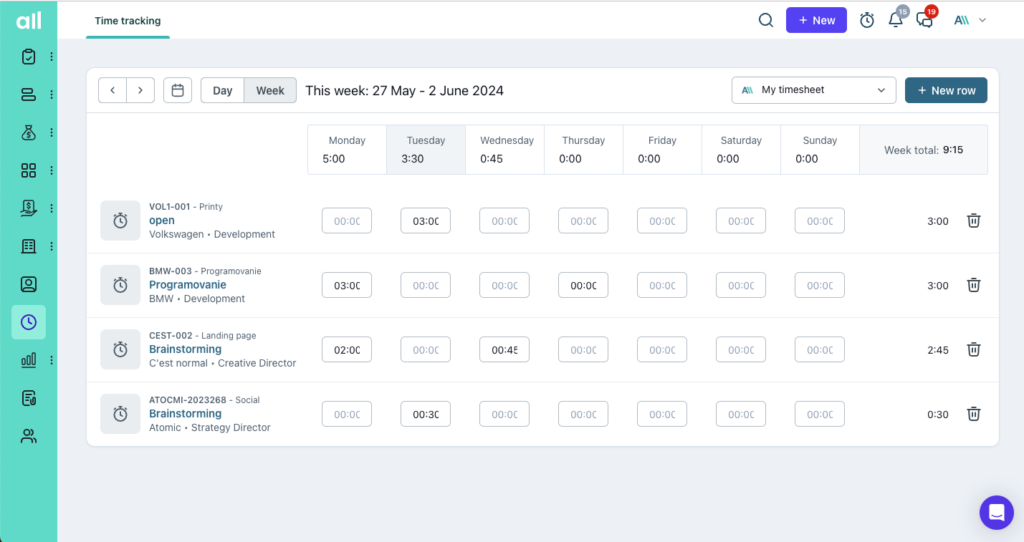As a former creative director and an advertising agency co-owner, I know the importance of time management. We have tight deadlines to meet, and we need to be efficient with our time to deliver the work.
However, I also understand why many creatives have an aversion to time tracking. After all, creativity is a fluid and spontaneous process, and it can be difficult to quantify the time it takes to generate new ideas.
Table of Contents
Understanding Creatives
Creatives often thrive in unstructured environments where they can experiment and explore. Stringent time tracking can stifle creativity and disrupt the organic flow of ideas.
Additionally, creatives may feel that time tracking places more value on how long they work rather than the quality of their work. They may also feel that it’s unnecessary paperwork that takes away from their time to focus on their craft.
Reasons Why Creatives Dislike Time Tracking
- Feels Restrictive: Time tracking can sometimes feel like a chain that hampers the free movement of thought.
- Breaks the Flow: The need to log time can break concentration, especially during peak creative moments.
- Overemphasis on Quantity Over Quality: Creatives may feel that time tracking places more value on how long they work rather than the quality of their work.
- Administrative Overhead: Time tracking can seem like unnecessary paperwork to a creative who wants to focus solely on their craft.
Benefits of Time Tracking for Creatives
Despite their reservations, there are many benefits to time tracking for creatives.
- Enhanced Productivity: Understanding where time is spent can help in optimizing tasks and eliminating time-wasters.
- Setting Boundaries: Helps in preventing overwork and burnout.
- Fair Compensation: Accurate time tracking ensures creatives are paid for every hour they put into a project.
- Project Management: Provides a clear picture of project timelines and when tasks are likely to be completed.
Tips to Make Time Tracking More Palatable for Creatives
Here are a few tips to make time tracking more palatable for creatives:
- Use Intuitive Tools: Adopt user-friendly time tracking tools that seamlessly integrate into the creative workflow.
- Flexible Tracking Methods: Allow for methods that track time in broader chunks, rather than minute-by-minute details.
- Educate on the Benefits: Help creatives understand how time tracking can actually benefit them in the long run.
- Encourage Routine: Set specific times during the day (e.g., beginning, middle, end) for logging hours, so it becomes a habit.
- Incorporate Breaks: Ensure that breaks are part of the schedule, allowing creatives to refresh and rejuvenate.

Time Tracking with Allfred: A Game-Changer for Creative Agencies
I’ve seen firsthand how time tracking can be an asset for creatives. For example, one of my designers was initially hesitant to start using a time tracking tool. However, after a few weeks, she found that it helped her to be more productive and to better manage her time.
Through Allfred’s intuitive resource planning dashboard, she gained a deep understanding of her tasks and deadlines. The real-time insights provided by Allfred allowed her to identify patterns in her work habits, enabling her to optimize her creative process further. By tracking her progress over time, she could measure her improvement and set realistic goals, ensuring a steady growth in her productivity.
Another creative on my team has been using a time tracking tool for several years now. He says that it’s essential for his workflow and that it helps him to stay on track. He also appreciates that the tool allows him to track his progress over time and to see how he’s improving.
By integrating Allfred into our workflow, we’ve enhanced collaboration, streamlined processes, and significantly boosted productivity. Allfred provides a comprehensive view of our projects, ensuring we never miss deadlines or overlook crucial details. Its robust reporting capabilities empower us to make data-driven decisions, enhancing our project management strategies.

Unlock Creativity, Empower Productivity
It’s important to understand the nature of the creative process and to be flexible with time tracking. However, with the right approach, time tracking can be a valuable tool for creatives. It can help them be more productive, set boundaries, ensure fair compensation, and better manage projects.


